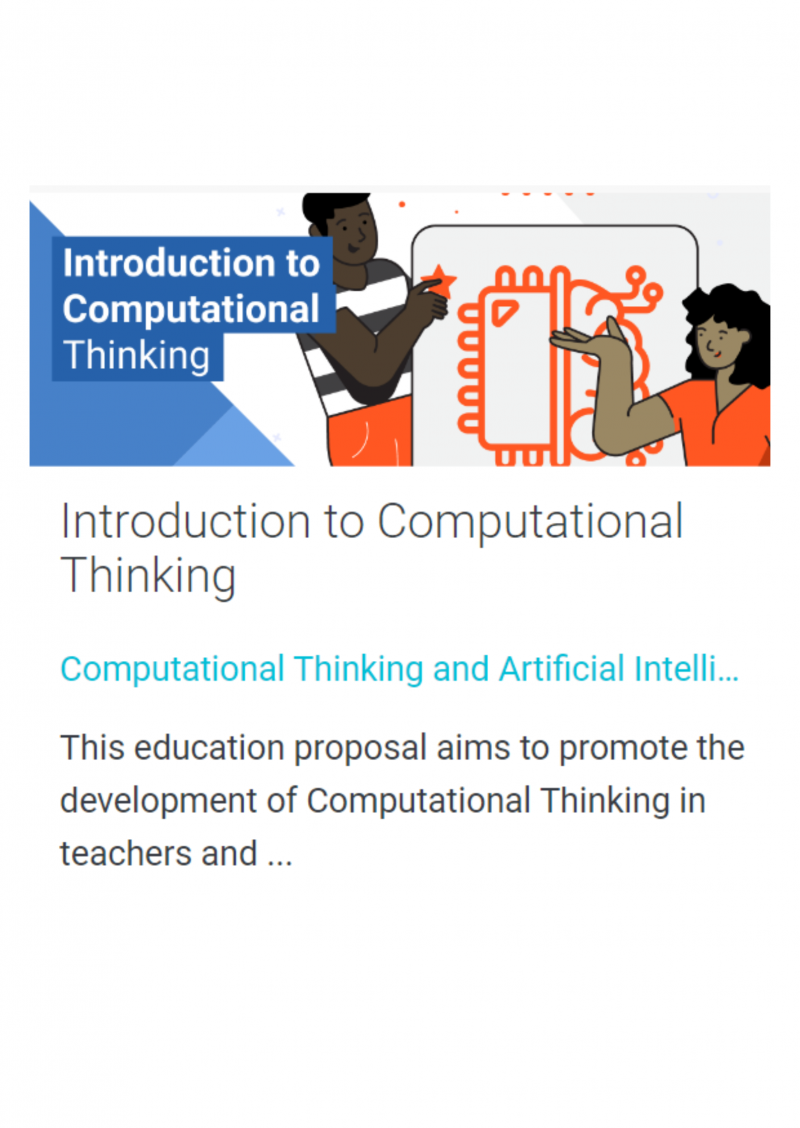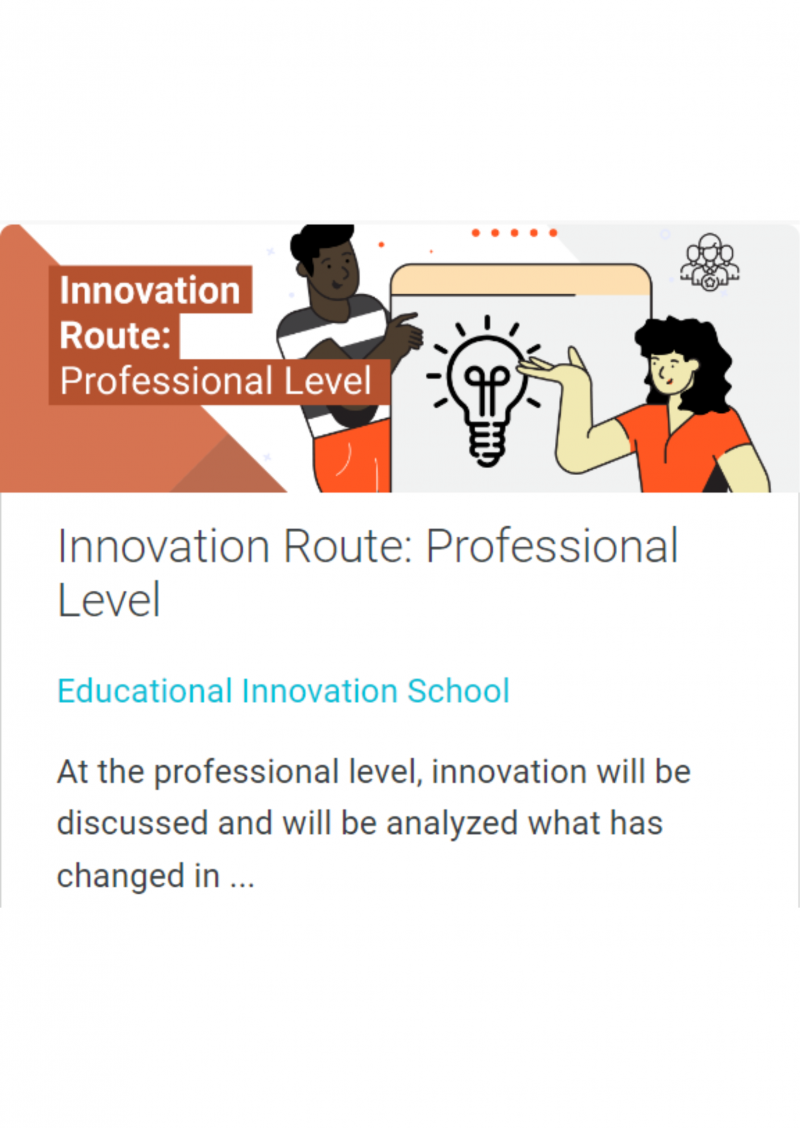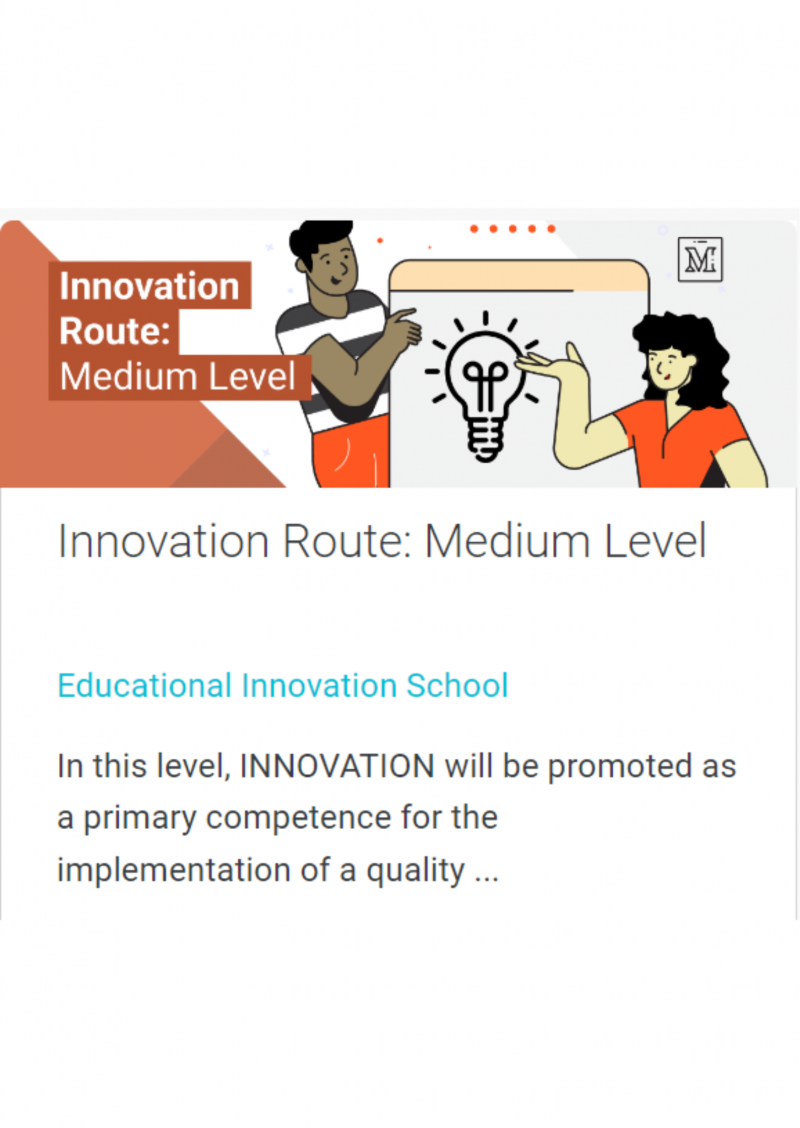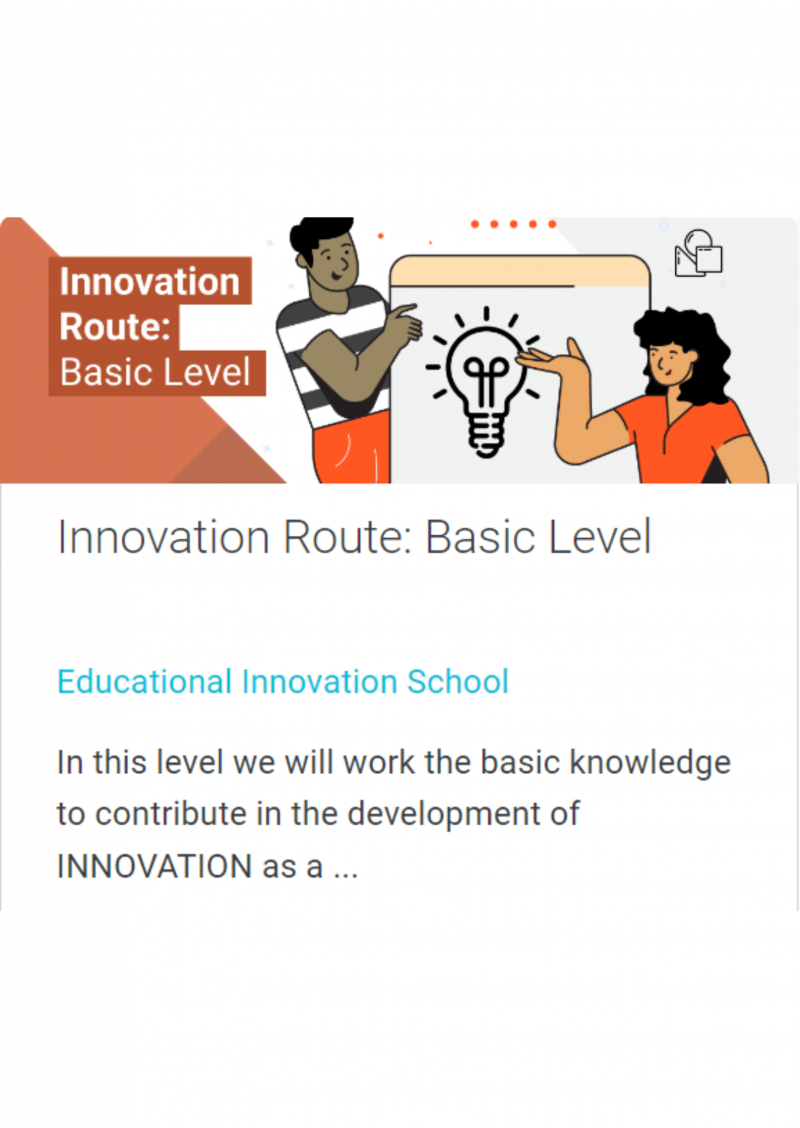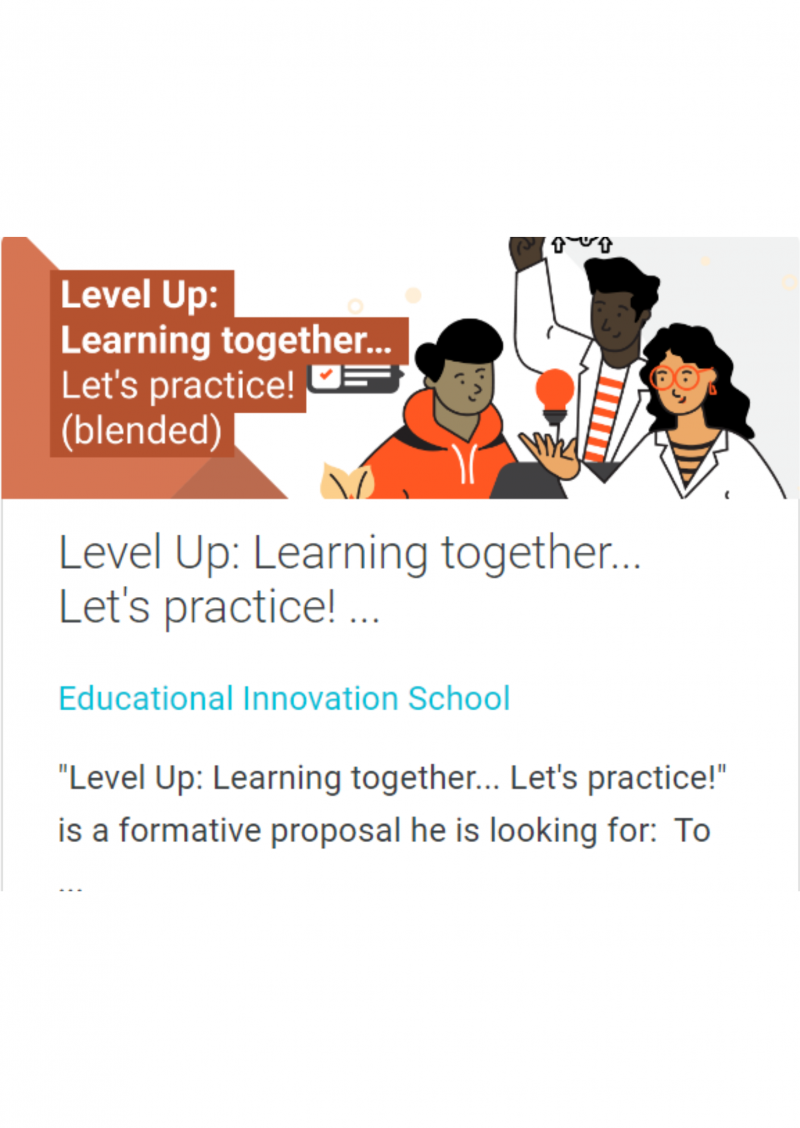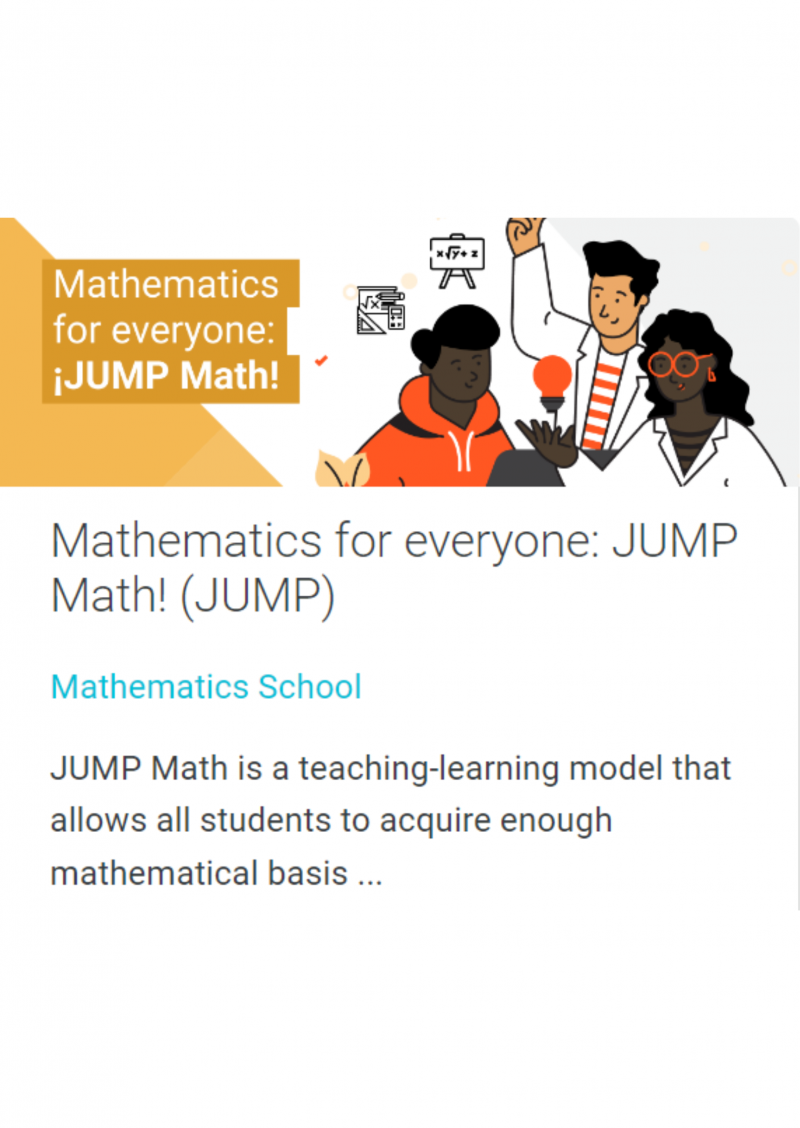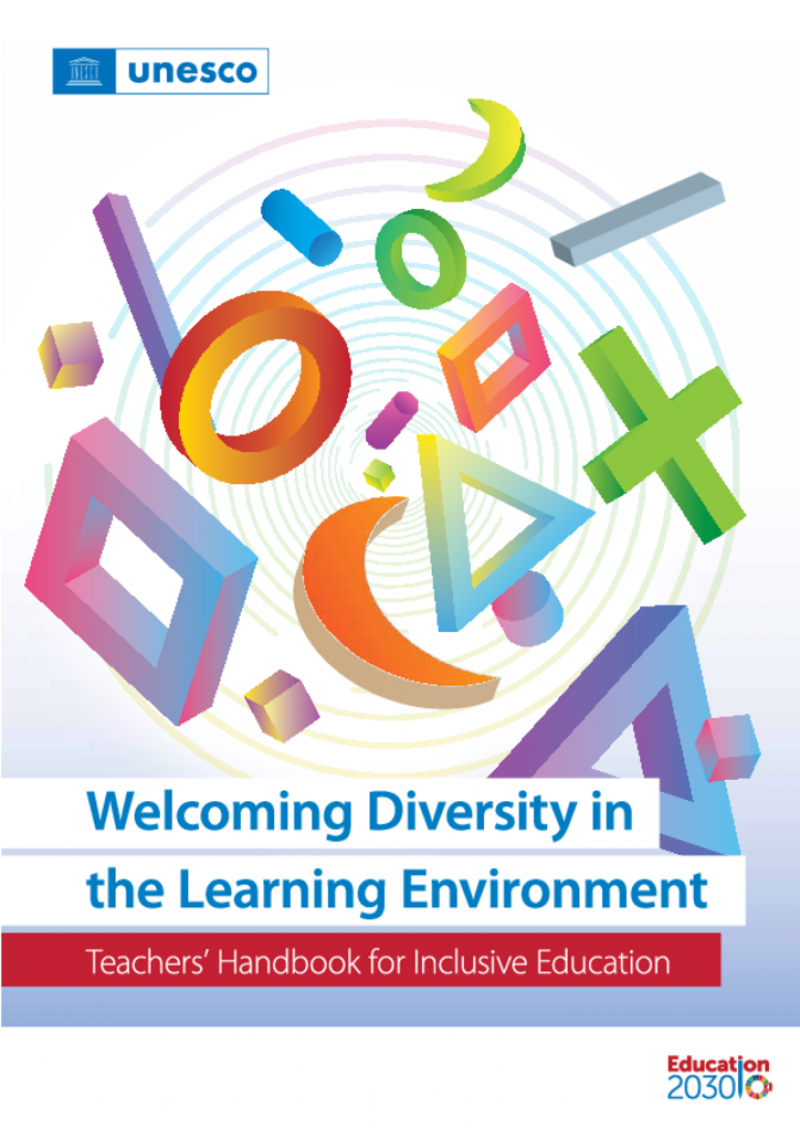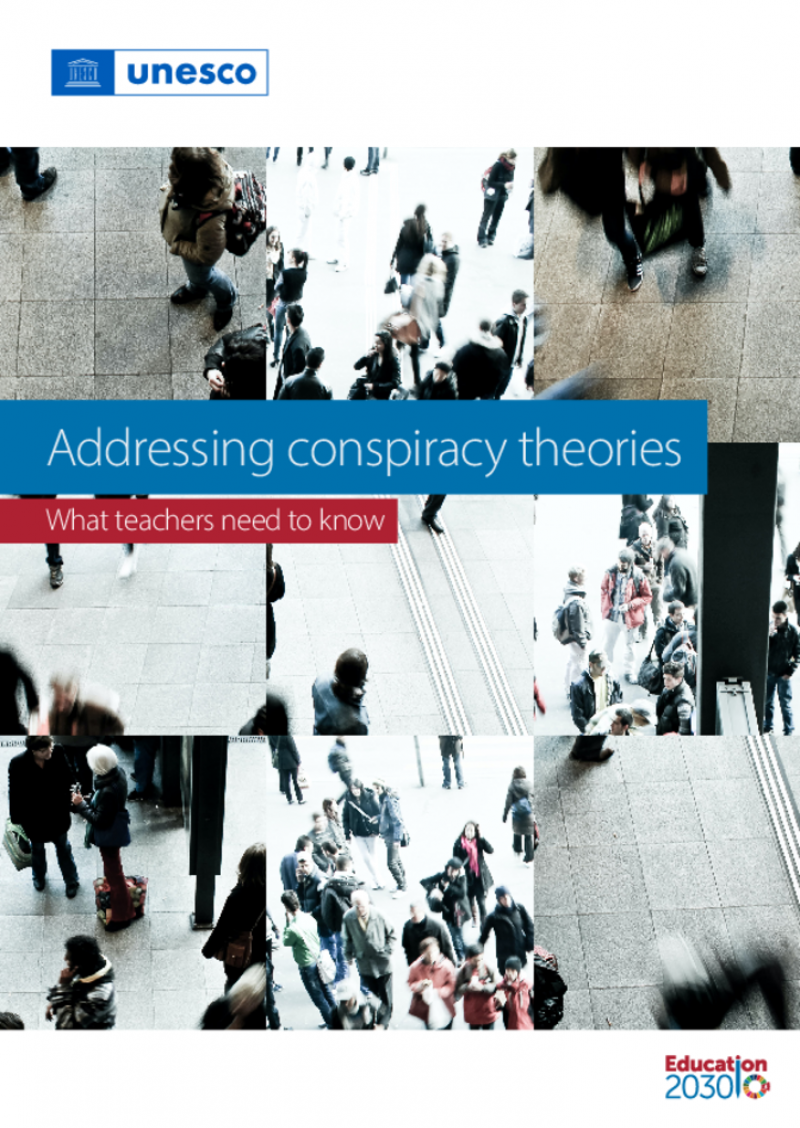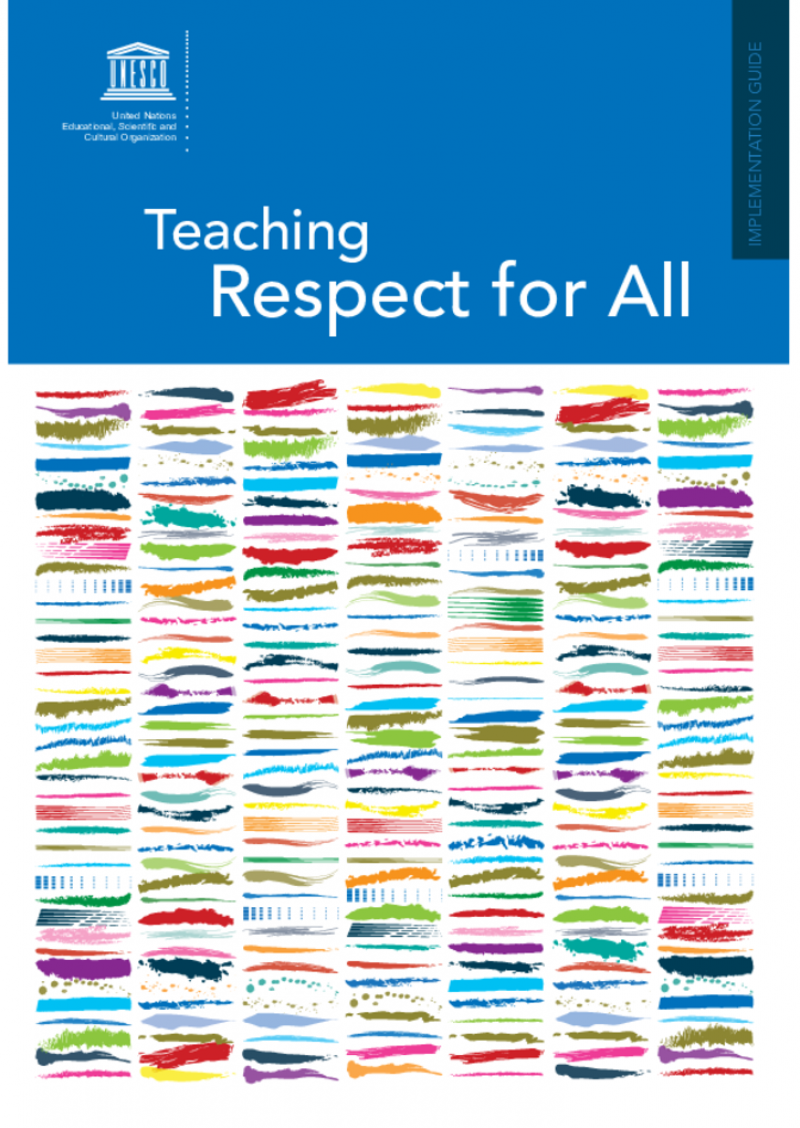Centro de Recursos para Docentes
Visualizar 41 - 60 de 77
Introducción al pensamiento computacional
Se considera al pensamiento computacional como la suma de un conjunto de procesos de pensamiento, habilidades y actitudes que brindarán la oportunidad a la infancia y a la juventud de romper con la brecha digital y social existente.
Para acceder al curso es necesario registrarse (gratuitamente) en la plataforma de ProFuturo.
Ruta innovación: Nivel profesional
En el nivel profesional se hablará de innovación, y se analizará qué ha cambiado en las metodologías pedagógicas. También se verán casos de éxito y propuestas de aplicación de estas metodologías que pretenden orientar a la identificación de los puntos de mejora, las necesidades y los problemas en el aula.
Para acceder al curso es necesario registrarse (gratuitamente) en la plataforma de ProFuturo.
Ruta innovación: Nivel avanzado
El objetivo en este curso es trabajar la innovación como competencia de transformación del sistema educativo. Se pone en prática la innovación mediante el desarrollo creativo de aplicaciones tecnológicas.
Para acceder al curso es necesario registrarse (gratuitamente) en la plataforma de ProFuturo.
Ruta innovación: Nivel medio
El objetivo de este curso es potenciar la innovación como competencia primordial para la implantación de un modelo de enseñanza-aprendizaje de calidad. En este nivel el docente conocerá experiencias educativas innovadoras que tendrá que llevar a la práctica en su centro educativo.
Para acceder al curso es necesario registrarse (gratuitamente) en la plataforma de ProFuturo.
Ruta innovación: Nivel básico
El objetivo de esta propuesta de desarrollo profesional docente es reflexionar sobre la importancia de la innovación y asentar las bases para el desarrollo de prácticas encaminadas a fomentarla. En este nivel se trabajarán los conocimientos básicos para contribuir al desarrollo de la innovación como competencia fundamental que favorece el éxito personal y profesional de los alumnos.
Para acceder al curso es necesario registrarse (gratuitamente) en la plataforma de ProFuturo.
Level Up: Aprendiendo juntos… ¡A practicar!
Es una propuesta que propone una serie de herramientas de práctica docente innovadoras y que busca fomentar la colaboración entre docentes.
Para acceder al curso es necesario registrarse (gratuitamente) en la plataforma de ProFuturo.
¡JUMP Math! Matemáticas al alcance de todos
El objetivo de esta formación es mejorar la preparación del profesorado de primaria en el área matemática inspirándose en la filosofía y metodología de JUMP Math, un modelo de enseñanza-aprendizaje que permite que todos los alumnos adquieran la base matemática suficiente para desenvolverse con confianza ante retos vitales y profesionales.
Para acceder al curso es necesario registrarse (gratuitamente) en la plataforma de ProFuturo.
Coordinated action to transform education. What's in it for teacher representatives?
This briefs presents what teacher representatives gain through coordinated action. The involvement of teacher representative bodies in broader policy dialogue takes place through multi-stakeholder coordination mechanisms, including local education groups (or the equivalent). Here, they can bring the attention of decision makers and other partners to issues and practices for ensuring coherence in the implementation of education policy, including investments needed in teacher preparation, professional development, raising teaching standards and improving teacher well-being.
Welcoming diversity in the learning environment: teachers' handbook for inclusive education
This teachers' handbook is intended to serve as a practical resource to help teachers and teacher educators to gain understanding of the multiple issues of inclusion in their day-to-day work and acquire competencies that facilitate inclusive pedagogy. The handbook is comprised of nine modules – each of which presents the conceptual discussion of key topics related to inclusion and diversity and features some promising case studies, instruments and approaches. It also provides a framework for ensuring learning continuity in the wake of crises and emergencies such as the COVID-19 pandemic, and deals with a range of topics aimed at building the capacities of teachers and teacher educators for recovery and resilience in education systems in the COVID-19 context.
How to design an electronic lesson in 24 hours
Learning design for smart learning.
Defines the general landscape of instructional design in smart education.
Understand the five steps of lesson planning in Smart Learning.
Explains the requirements for designing a session in smart learning.
Design a smart learning session using Google Classroom.
How to become a remote teacher in 24 hours
Recognize e-learning technology.
Identify the main components of e-learning.
Identify tools for managing the educational process in e-learning.
Uses the tools of the educational process: Moodle Cloud.
Social and emotional learning for schools
This is a dual certifying course that combines social and emotional learning (SEL) for classrooms and SEL for teachers. The objective of the certification is to enhance personal well-being and build the professional capacity of teachers for SEL.
Online Learning Design for Educators Specialization
Specialization offering three courses for educators seeking to improve and expand their repertoire of online teaching skills related to the design, development and delivery of effective and engaging online courses and lessons for school age and adult learners. It includes three courses: "Online education: The foundations of online teaching", "Create video, audio and infographics for online learning", "Online teaching: Using Zoom to connect with learners". It is possible to audit the courses for free.
Docentes en contextos de crisis: Coaching entre pares
En contextos de crisis, en los que muchos docentes carecen de formación o tienen una formación insuficiente, lo que más se necesita es un apoyo continuado; sin embargo, el desarrollo profesional en estos contextos es esporádico, de calidad variada y a menudo carece de apoyo de seguimiento tras la formación. Para hacer frente a esta falta de apoyo profesional de calidad para los docentes en contextos de crisis, el Grupo de Trabajo de Docentes en Contextos de Crisis (TiCC) publicó en marzo de 2016 el paquete formativo Formación para Docentes de Primaria en Contextos de Crisis, una formación basada en competencias diseñada específicamente para los docentes que trabajan en contextos de emergencia.
Tras la publicación del paquete de formación, el TiCC comenzó a trabajar en materiales complementarios de coaching entre pares. La formación entre pares es un desarrollo profesional continuo dirigido por docentes para docentes. El apoyo continuo que los docentes pueden prestarse mutuamente a través de la formación entre pares ayuda a los docentes a realizar cambios positivos sostenidos en su práctica docente. El coaching entre pares proporciona este apoyo a través de dos actividades principales: 1) Círculos de aprendizaje de docentes (CAD), y 2) Observaciones en el aula.
Los principales componentes son:
- La guía para la facilitación
- Caja de herramientas de coaching entre pares, nivel 1 - solo CAD
- Caja de herramientas de coaching entre pares, nivel 2 - CAD y observaciones en el aula
Addressing anti-semitism in schools: training curriculum for secondary education teachers
This publication is part of a four-volume set of training curricula to address anti-Semitism in schools. This volume focuses on the training curriculum for secondary education teachers. Each volume in this set aims to assist trainers in the field of education globally to work effectively towards strengthening the capacity of teachers to prevent and respond to antiSemitism, this specific and highly dangerous type of prejudice directed at Jewish people. In this sense, the curriculum addresses anti-Semitic prejudice and perceptions of Jews, phenomena which often also fulfil a social and political function in societies around the world; it is not material aimed at preparing teachers for intercultural dialogue.
Addressing anti-semitism in schools: training curriculum for vocational education teachers
This publication is part of a four-volume set of training curricula to address anti-Semitism in schools. This volume focuses on the training curriculum for vocational education teachers. Each volume in this set aims to assist trainers in the field of education globally to work effectively towards strengthening the capacity of teachers to prevent and respond to antiSemitism, this specific and highly dangerous type of prejudice directed at Jewish people. In this sense, the curriculum addresses anti-Semitic prejudice and perceptions of Jews, phenomena which often also fulfil a social and political function in societies around the world; it is not material aimed at preparing teachers for intercultural dialogue.
Addressing anti-semitism in schools: training curriculum for school directors
This publication is part of a four-volume set of training curricula to address anti-Semitism in schools. This volume focuses on the training curriculum for school directors. Each volume in this set aims to assist trainers in the field of education globally to work effectively towards strengthening the capacity of teachers to prevent and respond to antiSemitism, this specific and highly dangerous type of prejudice directed at Jewish people. In this sense, the curriculum addresses anti-Semitic prejudice and perceptions of Jews, phenomena which often also fulfil a social and political function in societies around the world; it is not material aimed at preparing teachers for intercultural dialogue.
Addressing anti-semitism in schools: training curriculum for primary education teachers
This publication is part of a four-volume set of training curricula to address anti-Semitism in schools. This volume focuses on the training curriculum for primary education teachers. Each volume in this set aims to assist trainers in the field of education globally to work effectively towards strengthening the capacity of teachers to prevent and respond to antiSemitism, this specific and highly dangerous type of prejudice directed at Jewish people. In this sense, the curriculum addresses anti-Semitic prejudice and perceptions of Jews, phenomena which often also fulfil a social and political function in societies around the world; it is not material aimed at preparing teachers for intercultural dialogue.
Addressing conspiracy theories: what teachers need to know
This document intends to support educators limit the dissemination of conspiracy theories by responding to them when they are shared among learners or within the wider school community.
Teaching respect for all: implementation guide
This Teaching Respect for All Implementation Guide comprises a set of policy guidelines, questions for self-reflection, ideas and examples of learning activities to integrate Teaching Respect for All into all aspects of upper primary and lower secondary education, in an effort to counteract discrimination in and through education. It mainly targets policy makers, administrators/headteachers and formal and informal educators.
Part 2 targets headteachers and education NGO managers, suggesting key areas of intervention with a list of possible actions/activities and Part 3 targets teachers and describes methods of dealing with difficult topics such as racism and discrimination with learners as well as provides suggestions for possible entry points and topics to link the issues of respect for all with particular teaching subjects.
